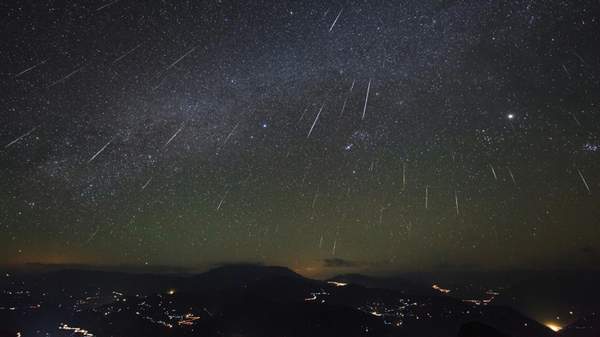Overview
Every December, the Geminids meteor shower lights up our skies. Considered to be the most spectacular meteor shower of the year, it's caused by a stream of debris, left by an asteroid dubbed the 3200 Phaethon, burning up in Earth's atmosphere.
The shower is expected to be visible from midnight on Friday, December 14 through to the early morning on Saturday, December 15, though the best time to catch an eyeful will be after midnight, when the moon has set and its light will not interfere. At that time, you could catch as many as 120 meteors every 60 minutes — each moving at about 125,500 kilometres per hour.
To catch the spectacular shower, get as far away from bright lights as possible — this could be a good excuse to head out of the city to a clear-skied camping spot — and pray for no clouds. If there are, NASA will be live streaming from its Marshall Space Flight Center via its Facebook page.
The shower's name comes from the constellation from which they appear to come, Gemini. So that's what you'll be looking for in the sky. To locate Gemini, we recommend downloading the Sky Map app — it's the easiest way to navigate the night sky (and is a lot of fun to use even on a non-meteor shower night). If you're more into specifics, Time and Date also has a table that shows the direction and altitude of the Geminids.
The Geminids meteor shower will take place during the night on Friday, December 14.
Image: NASA, Marshall Space Flight Center, Jeff Dai.
